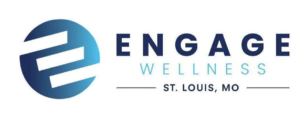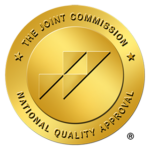Strategic Relapse Prevention Program in St. Louis
Evidence-Based Relapse Prevention For Substance Abuse And Co-Occurring Disorders
Keep Your Recovery On Track With Practical Strategies For Sobriety
You’ve worked so hard throughout your recovery journey and reached a greater level of sobriety and self-efficacy. But one moment of anxiety or turmoil could challenge everything you’ve accomplished. We want to help you maintain your progress and success with practical support, training, and accountability, ensuring your recovery continues uninterrupted. Welcome to a supportive community and an evidence-based approach to strategic relapse prevention.

What Is Relapse Prevention?
A relapse prevention program is designed to help anyone struggling with alcohol or substance use disorder maintain their sobriety with practical solutions, coping skills, contingency plans, accountability, and support. Some of the skills and approaches are also appropriate to help you or a loved one manage the symptoms of mental health disorders, like anxiety, PTSD, depression, and more.
Relapse prevention is part of an overarching treatment program and requires group therapy sessions and ongoing education throughout your treatment process. Many of these skills follow you in life and support your long-term sobriety. Strategies learned in these sessions can be led by clinicians, therapists, and peer leaders at our relapse prevention program in St. Louis.
At Engage Wellness Missouri, we are committed to providing you with comprehensive relapse prevention training and treatment, as well as connecting you with our multidisciplinary team and experiencing the benefits of our holistic approach to addiction and co-occurring disorder care.
How (and Why) Relapse Prevention Therapy Works
Relapse is, unfortunately, a natural part of the cycle of addiction and recovery. Studies show that relapse rates can get as high as 65% to 70% in the 90-day window following treatment programs.[1] Additional findings showed that one year post-treatment, less than 35% of non-medication-assisted treatment participants who had cocaine use disorder were still abstinent, but the rates of abstinence were much higher for medication-assisted treatment. These numbers underscore the critical need for effective, evidence-based relapse prevention programs.
Relapse prevention strategies work by interrupting the cycle of addiction in early recovery and replacing harmful habits with healthy coping strategies that last a lifetime. Mental health and behavioral health therapy models are also a core component of this program and could include cognitive behavioral therapy (CBT), dialectical behavioral therapy (DBT), motivational interviewing (MI), and more. Medication interventions can also counteract the effects of some substances and alleviate withdrawal symptoms, making it easier to feel better and stay focused on recovery.

Efficacy of Relapse Prevention For Substance Abuse
Relapse prevention strategies are generally effective, but their effectiveness largely depends on the participant’s level of participation in treatment, their circle of support and accountability, and the availability of community support.
Studies show that mindfulness-based relapse prevention (MBRP) strategies offer a significantly lower risk of relapse and far fewer days of substance use and heavy drinking after a 6-month follow-up, and the numbers were even better after a 12-month follow-up.[2] Holistic mindfulness interventions for relapse prevention change the way you think about your recovery experience and how you apply coping skills. These changes have a positive impact on your overall well-being and enhance your quality of life.
What to Expect from A Relapse Prevention Program
Preventing relapse is a critical part of addiction recovery, but the cycle of addiction works in both directions. The longer you’re able to abstain from alcohol and harmful substances, the more your brain and your body can be restored to natural functioning, and the more clarity you will have to maintain sobriety and pursue recovery.
Industry providers believe that relapse occurs in three stages: emotional relapse, mental relapse, and physical relapse.[3] By intervening at the earliest phase, emotional relapse, and identifying the signs and symptoms, the risk of physical relapse is significantly lower. Here’s what to expect from effective, evidence-based relapse prevention programs:[4]

Strategic Relapse Prevention Program in St. Louis at Engage Wellness
Relapse prevention programs are essential throughout long-term care and offered as part of any level of care, including:



